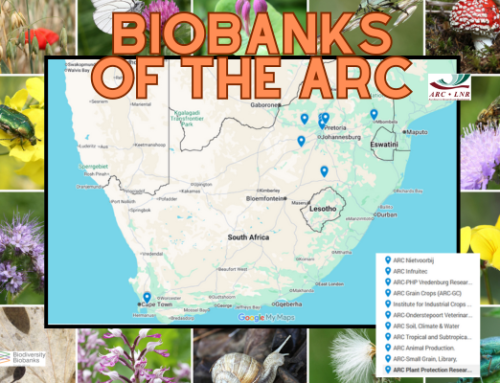Biodiversity Biobanks South Africa Launch Unites Experts In Search For Solutions
The official launch of the Biodiversity Biobanks South Africa on 1 March 2023 will celebrate the network of institutions that preserve, maintain and utilise South Africa’s vast biodiversity biobanking resources – and provide critical research infrastructure for answering important questions about our world.
“South Africa is considered to be a megadiverse country, with exceptionally rich and unique biodiversity,” notes Professor Michelle Hamer, lead for the Biodiversity Biobank South Africa (BBSA) research infrastructure project. “Our rich biodiversity heritage offers many economic opportunities, and the potential for research, innovation and discovery in a wide range of fields and sectors.”
The BBSA provides a system of repositories of genetic resources, including reproductive tissues such as seeds, egg and sperm, other tissues including blood, DNA extracts and microbial cultures, representing species, strains, varieties and breeds present in South Africa, including domesticated crops and livestock. These resources can be used to support research, capacity development and the development of new or improved products and practices in the fields of agriculture, human health and well-being, environmental management and conservation biology.
The launch will form part of a three-day Biodiversity Biobank SA Forum from 28 February to 2 March 2023 at the same venue.
SANBI CEO Mr. Shonisani Munzhedzi will open the presentations, and the Department of Science & Innovation (DSI) as the funders of the BBSA, will formally launch the BBSA.
Invited speakers from several of South Africa’s biodiversity biobank institutions will present on the value and role of the biobanks for food security, conservation, biotechnology and capacity development.

South Africa is one of the most megadiverse countries in the world, and the BBSA hopes to help understand, conserve and utilise this diversity.
“While this certainly does not signal the start of our work, it is a chance to celebrate our progress and to look forward to future achievements,” notes Professor Hamer. “The BBSA Launch and Forum will provide an opportunity for strengthening the BBSA community, for sharing knowledge and expertise relating to biodiversity biobanking, and for advancing the cause of the biobanking community.”
Biodiversity Biobanks Launch Details
- Date: 1 March 2023
- Time: 09h00 for 10h00 – 17h00
- Venue: 26 Degrees South Hotel, Beyers Naude Drive Zwartkops, Muldersdrift, Gauteng
Want to know more about the Biodiversity Biobanks South Africa launch? Just consult the BBSA Launch programme.
BBSA: Building Better Biobanking
The BBSA provides a coordinating structure across several of South Africa’s existing biodiversity biobanks, with the main aim of increasing the range and quality of samples stored and/or distributed, and increasing and improving access for research and development through a single, centralised data portal, which will also allow more strategic collection of samples.
“The BBSA is a network,” Professor Hamer notes. “It’s a community of people who work in and with biobanks to ensure that these irreplaceable national and global assets survive for future generations of researchers and ordinary citizens, and that they are used in many ways to solve societal problems.”

The BBSA is a network of organizations that share a common interest in long-term preservation, management and utilisation of biological samples of biodiversity.
The Biodiversity Biobanks South Africa project is a network that reaches across institutions. Stakeholders in the BBSA include SANBI (as the host institution), the DSI (in multiple roles), the managers of the broader institutions or departments under which the biobanks fall, and the staff in the biobanks.
But stakeholders also include permitting authorities, potential funders, contributors to the biobanks, users of samples and data – and anyone across the broader society who has an interest in agriculture, economic development, conservation, health, science education, ethics and more.
“Biobanks are important all around the world. But it’s in the developing world that these resources could be especially powerful tools – both because of our very rich and unique biodiversity, and because of the potential for development of expertise. Biodiversity matters – and we all have a stake in it.”
For more about what biobanks do (and don’t), read Five Things You Always Wanted To Know About Biobanks (But Were Too Afraid To Ask).

What are biodiversity biobanks?
Biodiversity biobanks are repositories of biologically relevant resources, including reproductive tissues such as seeds, eggs and sperm, other tissues including blood, DNA extracts, microbial cultures (active and dormant), and environmental samples containing biological communities….






